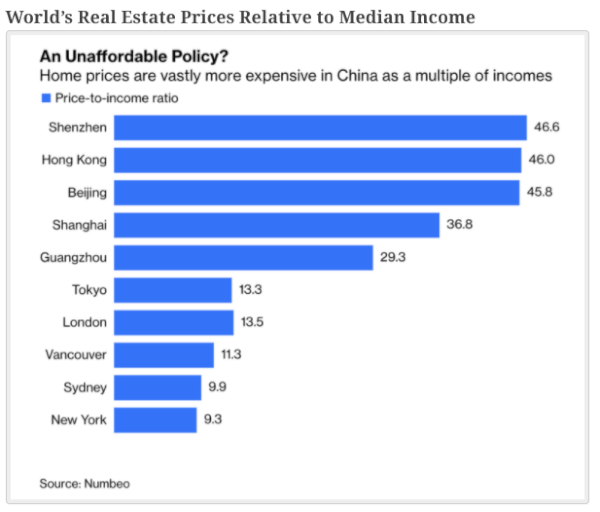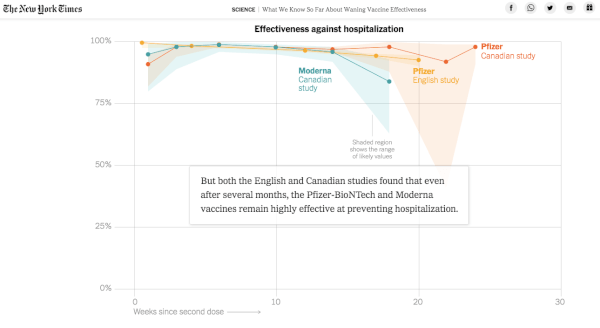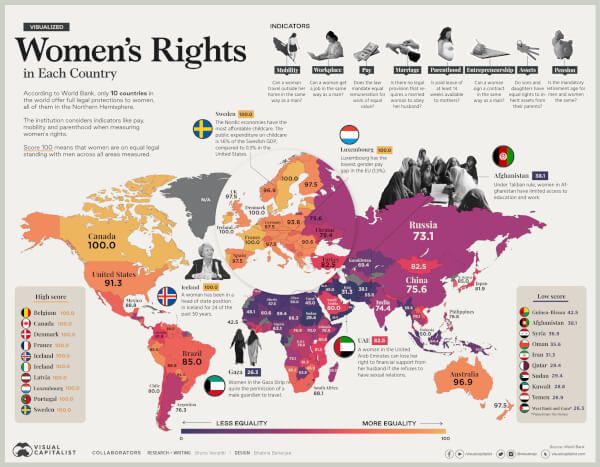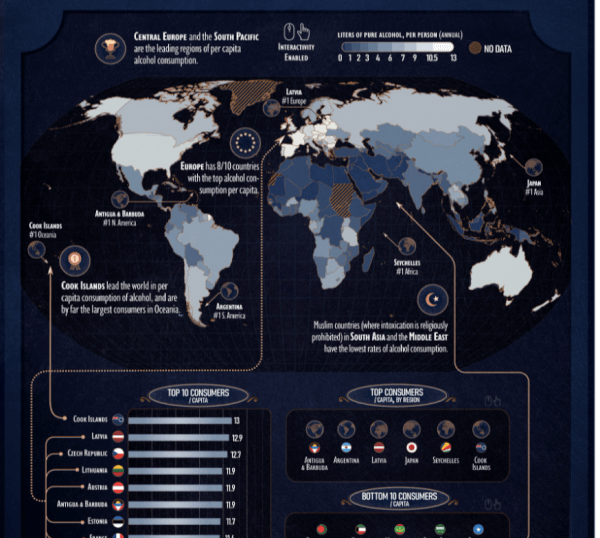Tovenaarsleerling
De machinerie van Facebook biedt niet alleen een platform voor mensen die de publieke opinie willen beïnvloeden, het zorgt er ook voor dat ze betaald worden. Dat geschiedt via Instant Articles, waarbij Facebook rechtstreeks betaalt aan ‘accounts’ voor de hoeveelheid clicks die hun ‘artikelen’ krijgen. Omdat sensatie en emotie meer aandacht krijgen dan evenwicht en bedachtzaamheid, is het sociale medium al een medium voor volksmennerij. Maar dus kennelijk ook een financier daarvan.
Lang artikel wekt de indruk dat Facebook weinig controle meer heeft over zijn netwerk, en gevangene is van zijn eigen blinde jacht op volume. Slimmeriken hebben ook ontdekt dat als ze meerdere accounts hebben, die elkaars ‘clickbait’ overnemen, ze hun inkomsten kunnen vermenigvuldigen. (tip D. Rosenberg)
Duur dak
U dacht dat New York duur wonen was. Of Londen. Dit is huizenprijs afgezet tegen modaal inkomen:

Drukte
Er cirkelen nu ongeveer 7.500 satellieten in de Low Earth Orbit, op zo’n 2.000 km van de aarde. Dat aantal groeit snel, met alle plannen voor wereldomspannende netwerken. 1.300 erbij vorig jaar, al 1.400 dit jaar. SpaceX, OneWeb, Amazon, Starnet/GW (China) en anderen hebben plannen aangekondigd voor totaal 100.000 satellieten erbij. Rwanda (ja, Rwanda) heeft plannen aangekondigd om een netwerk van 320.000 satellieten te bouwen.
Vrije wil!
Terug bij de oervraag: bestaat vrije wil? Er zijn voldoende denkers, de onuitstaanbare Sam Harris onder andere, die zeggen: nee. Tomas Pueyo hier behandelt in een relatief kort stuk de hoofdpunten, geeft Harris gelijk – helaas – maar gaat dan door en belandt bij de conclusie: ‘Je ontwikkelt vrije wil als je gelooft in vrije wil.’ Hoe komt hij daar aan? Lees.
MAGA
‘Wil je echt weten waarom MAGA’s jullie haten?’ is de titel van dit opstel. (MAGA = Make America Great Again.) Heel gezond om eens te lezen. Polarisatie in de VS is niet alleen links tegen rechts, maar ook onderklasse tegen bovenklasse.

Hoe lang werkt 't?
Als ik gevaccineerd ben tegen covid-19, hoe lang werkt dat spul dan? Ieder vaccin raakt uitgewerkt na verloop van tijd. Het belangrijkste om te onthouden is het onderscheid tussen bescherming tegen besmetting, en bescherming tegen besmetting met ernstige, levensbedreigende symptomen. Volgens de meest recente studies neemt de bescherming tegen ‘ordinaire’ besmetting af, maar blijft de bescherming tegen ernstige symptomen op 80-100%. Dit is een screenshot van het artikel in de NY Times, maar er staan ook grafieken in die laten zien hoe de effectiviteit verloopt bij milde besmetting. Afdronk: de kans dat je ziek wordt neemt langzaam weer toe; maar de kans dat je het ziekenhuis in moet, blijft onverminderd klein.

Historicus Yuval Noah Harari (‘Sapiens’ en ‘Homo Deus’) heeft een duit in de zak over klimaatverandering. Als de geborneerde interviewer hem vraagt over de ‘aanstaande catastrofes,’ zegt hij: ‘Als ik afga op de beste rapporten die ik gelezen heb, als we nu twee procent van het wereldwijde BBP investeren in het ontwikkelen van milieu-vriendelijke technologie en milieu-vriendelijke infrastructuur, dan zou dat voldoende zijn om catastrofale klimaatverandering te voorkomen. Het mooie van 2% is dat het wel een heleboel geld is, maar wel haalbaar. Als het 20% was dan zou ik zeggen ‘vergeet het maar, te laat.’ Maar 2%? Politici doen niets anders dan het heen en weer schuiven van 2% van de begroting, van daar naar hier en terug. Dat kunnen we. We moeten af van dat apocalytische denken dat het te laat is, en dat de wereld ophoudt te bestaan, en ons richten op iets praktisch: 2% van de begroting. That’s it.’
Krijg je daarmee mensen in beweging?
‘Dat is het mooie van twee procent. Het is niet erg indrukwekkend, maar dat is precies zo goed. Het geeft hoop. Het is niet zo dat we de hele economie ondersteboven moeten gooien en in grotten moeten gaan leven. We hoeven alleen maar 2% te verschuiven. Meer niet. Ik denk dat dat een krachtige boodschap is.’
Vrouw zijn

‘Vrouwenrechten.’ (Dat woord alleen al … Ooit een grafiek gezien die is gewijd aan mannenrechten? Moeten we niet zeggen: waar worden mannen en vrouwen gelijk behandeld? Enfin.) Bestudeer dit overzicht van de Wereldbank. Alles hangt natuurlijk af van de definities. Wat is het criterium? De Wereldbank: ‘Waar krijgen vrouwen volledige bescherming voor de wet.’ (Dat is toch in zichzelf alweer een testimonium paupertatis?) Hoe meet je dat? ‘Gelijke honorering, rechten, en bewegingsvrijheid.’ Slechts tien landen scoren 100%, waaronder België; niet Nederland en Duitsland. De mensheid heeft nog een lange weg te gaan.
U wordt gevolgd (2)
Gisteren vroeg ik: kan het zijn dat Uber (en andere bedrijven) kijken naar het model telefoon waarmee ik een taxi boek, om te kijken hoe draagkrachtig ik ben? Kranten hebben al gespeculeerd dat ze dat vast wel doen, maar ik kon geen zekerheid vinden. Lezer R.C., die liever anoniem blijft, schrijft:
‘Ik zit in de software kant van de vakantiereiswereld. En ja: prijzen worden afgestemd op het device dat je gebruikt. Dat ‘weten’ “wij”, en met ons alle aanbieders van online producten en diensten. Prijzen worden er inderdaad op afgestemd. Ook locatie speelt een rol. Zo zul je bij Booking een lagere accommodatie prijs aangeboden krijgen als je mobiel boekt. Je wordt geacht jonger te zijn (geen laptop meer), en flexibeler in je keuzes. Dus beter op zoek naar prijzen en ook prijsgevoeliger. Sterker nog: Booking biedt hotels de mogelijkheid om hierop in te spelen, en vraagt ze hun pricing erop af te stemmen.Je kan het omdraaien: er is vrijwel niets dat een Uber als aanbieder niet van jouw weet. Ik twijfel er niet aan dat ze zullen bijhouden of jij bijvoorbeeld in dure of minder dure restaurants eet, wat het prijssegment is van de kleding die je koopt etc. Het is de functie van cookies, die door velen achteloos worden geaccepteerd. Je zou die cookie statements eens goed moeten lezen in al hun details, om te begrijpen wat er gebeurt.
Door acceptatie heb je dus ingestemd. Jij hebt in feite pro-actief ingestemd met het verzamelen van al die gegevens. Er is helemaal niets geheims of verborgens aan. Het wordt gewoon niet goed gelezen of te achteloos geaccepteerd. Er valt door dergelijke bedrijven niets ‘openbaar’ te maken, omdat ze dat al deden toen je de cookie accepteerde; daar kon je het lezen…’
Nou, daar valt weinig aan toe te voegen. Lezer B. Verdam is in de kleine lettertjes gedoken:
‘Een snelle blik op de privacyvoorwaarden van Uber leert mij dat gepersonaliseerd pricing op basis van het telefoonmodel in ieder geval prima facie juridisch gelegitimeerd is. Zie Uber’s privacy policy: https://www.uber.com/legal/en/document/?name=privacy-notice&country=netherlands&lang=en
“Device data: We may collect data about the devices used to access our services, including the hardware models, device IP address or other unique device identifiers, operating systems and versions, software, preferred languages, advertising identifiers, device motion data, and mobile network data.” Zie “how we use data”:
“9. Automated decision-making: (…) We use personal data to make automated decisions relating to use of our services. This includes: (…) enabling dynamic pricing, in which the price of a ride, or the delivery fee for Uber Eats orders, is determined based on constantly varying factors such as the estimated time and distance, the predicted route, estimated traffic, and the number of riders and drivers using Uber at a given moment.”(Vetgedrukt door mij)
En een paar minuten later schrijft hij:
‘En ook interessant (onder IIb, 9, how we use data): ‘Using driver data (such as location, rating and gender) and rider data (such as rating, origin and destination) to help avoid pairings of users that may result in increased risk of conflict.’
En nog wat leerzame ervaringen van anderen:
‘Bij vliegtickets (Transavia) en bij Booking.com: Als je een aantal keren naar dezelfde accomodatie/vliegticket kijkt dan gaat opeens de prijs omhoog – waarschijnlijk om je te pushen om dan maar snel te boeken. Als je dan vervolgens je VPN aanzet, of op een andere manier via een ander IP adres bij ze binnen komt en naar exact hetzelfde product gaat, dan is de prijs weer zoals die origineel was en boek je dus gewoon weer voordelig.’ (F. Keunen)
‘Ik was een keer in de VS en kreeg van Uber een hoge prijs. Heb toen de Lyft app gedownload en prompt halveerde de Uber prijs!’ (M. Wesseling)
Drank

Welk land heeft de hoogste alcoholconsumptie? Grafieken op basis van de meest recente cijfers in de WHO. Opvallend: Frankrijk en Spanje drinken meer dan Rusland; in de top-10 wereldwijd staan 8 Europese landen.
